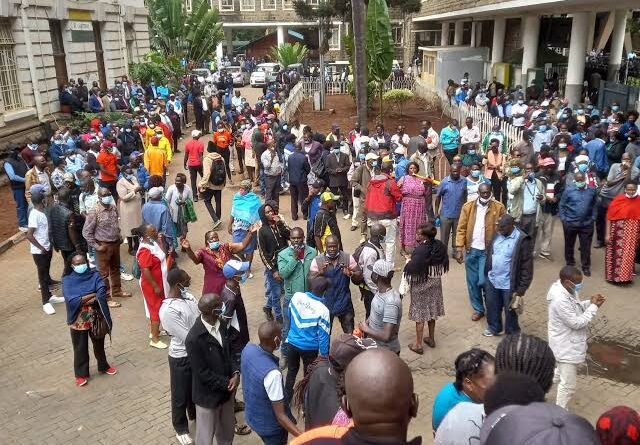Kenya. Treasury plans to go after counties over pensions debt
The National Treasury and Kenya Revenue Authority (KRA) have trained their guns on counties that have failed to remit statutory deductions to pension schemes.
With the non-remittances hitting Sh90.69 billion in May, Treasury is now mulling deducting the outstanding arrears directly from the counties equitable share of revenue and the taxman engaged to collect the debt.
Appearing before the Senate’s County Public Investments and Special Funds Committee, Treasury Cabinet Secretary Njuguna Ndung’u said that in consultation with the Retirement Benefits Authority, his ministry is contemplating invoking provisions of section 53 (b) of the Retirement Benefits Act, 1997 on recovery of deductions.
“Due to the huge outstanding pension arrears, the National Treasury may consider deducting the funds at source, that is, deducting from the budget allocations,” said Prof Ndung’u.
The Treasury boss said the 47 county governments owe the three pension institutions—Local Authorities Provident Fund (Lapfund), Local Authorities Pension Trust (Laptrust) and County Pension Fund (CPF)—Sh90.69 billion as at May 31, 2023.
According to the CS, Lapfund is owed Sh54 billion, comprising the principal amount of Sh6 billion and Sh48 billion in interest and penalties, while Laptrust’s debt is Sh33.01 billion and CPF Sh3.68 billion.
“The schemes are greatly affected by non-remittance and delayed remittance of contributions by county governments and their predecessors, the defunct local authorities,” said Prof Ndung’u. He added that only three counties—Nyeri, West Pokot and Kajiado—have cleared their pension arrears and penalties. Eight others—Bungoma, Kitui, Makueni, Uasin Gishu, Nyamira, Kakamega, Tana River and Lamu—have made partial payments.
However, the committee led Vihiga Senator Godfrey Osotsi questioned the legality of Treasury’s plan to deduct the funds at source, with Narok Senator Ledama Olekina saying the move would go against Article 219 of the constitution. The article states that a county’s share of revenue shall be transferred to the county without undue delay and without deduction, except when the transfer has been stopped under Article 225 (by Parliament).
Meanwhile, counties have contested the outstanding amounts.
Controller of Budget Nyakang’o on Monday said that the 32 county governments which submitted their reports to the CoB insisted they owe the three pension funds Sh11 billion. She raised concerns that even for the seven counties —Tana River, Marsabit, Kiambu, Busia, Lamu, Baringo and Kwale —that reported having no outstanding remittances, the position was not the same with the pension funds.
According to the report, Tana River is in arrears of Sh120.52 million, Marsabit Sh296.2 million, Lamu Sh17.06 million, Kwale Sh218 million, Kiambu Sh332.1 million, Busia Sh793.68 million and Baringo Sh391.62 million.
“A comparison of data from counties and pension institutions revealed some discrepancies, including instances where some counties reported no outstanding balances for pension fund schemes,” said Dr Nyakang’o.
“In contrast, the reports from the pension institutions showed pending amounts that do not tally with figures declared by counties. Therefore, a reconciliation must be done to ascertain the correct amount owed to pension schemes by county governments,” she added.
The 15 counties that did not submit their status of remittances owe the pension institutions Sh70.15 billion. Four counties —Nairobi, Mombasa, Machakos and Murang’a—owe the pension funds at least Sh55.51 billion. Nairobi’s outstanding remittances are Sh42.76 billion, followed by Mombasa at Sh10.64 billion, Machakos (Sh1.09 billion) and Murang’a (Sh1.02 billion). The other 11 counties owe a combined Sh14.64 billion.
Dr Nyakang’o recommended that counties and pension funds develop a repayment plan for settling the debts. Further, pension institutions should consider waiving penalties and interest on outstanding amounts to motivate the counties to pay.
“Counties should also not divert funds meant to settle pension liabilities and as such, payroll deductions should be paid alongside staff salaries while incoming leaders should ensure that outstanding pension liabilities are budgeted and paid promptly,” she said.
Read more @nation.africa











